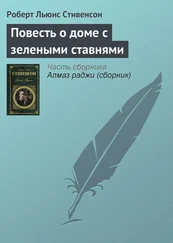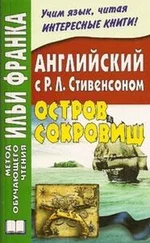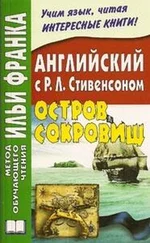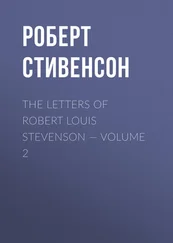Роберт Стивенсон - Vailima Letters
Здесь есть возможность читать онлайн «Роберт Стивенсон - Vailima Letters» — ознакомительный отрывок электронной книги совершенно бесплатно, а после прочтения отрывка купить полную версию. В некоторых случаях можно слушать аудио, скачать через торрент в формате fb2 и присутствует краткое содержание. Жанр: literature_19, foreign_antique, foreign_prose, на английском языке. Описание произведения, (предисловие) а так же отзывы посетителей доступны на портале библиотеки ЛибКат.
- Название:Vailima Letters
- Автор:
- Жанр:
- Год:неизвестен
- ISBN:нет данных
- Рейтинг книги:5 / 5. Голосов: 1
-
Избранное:Добавить в избранное
- Отзывы:
-
Ваша оценка:
- 100
- 1
- 2
- 3
- 4
- 5
Vailima Letters: краткое содержание, описание и аннотация
Предлагаем к чтению аннотацию, описание, краткое содержание или предисловие (зависит от того, что написал сам автор книги «Vailima Letters»). Если вы не нашли необходимую информацию о книге — напишите в комментариях, мы постараемся отыскать её.
Vailima Letters — читать онлайн ознакомительный отрывок
Ниже представлен текст книги, разбитый по страницам. Система сохранения места последней прочитанной страницы, позволяет с удобством читать онлайн бесплатно книгу «Vailima Letters», без необходимости каждый раз заново искать на чём Вы остановились. Поставьте закладку, и сможете в любой момент перейти на страницу, на которой закончили чтение.
Интервал:
Закладка:
Fanny had a fair night, and we are both tolerable this morning, only the yoke of correspondence lies on me heavy. I beg you will let this go on to my mother. I got such a good start in your letter, that I kept on at it, and I have neither time nor energy for more.
Yours ever,
R. L. S. Something new.I was called from my letters by the voice of Mr. – , who had just come up with a load of wood, roaring, ‘Henry! Henry! Bring six boys!’ I saw there was something wrong, and ran out. The cart, half unloaded, had upset with the mare in the shafts; she was all cramped together and all tangled up in harness and cargo, the off shaft pushing her over, Mr. – holding her up by main strength, and right along-side of her – where she must fall if she went down – a deadly stick of a tree like a lance. I could not but admire the wisdom and faith of this great brute; I never saw the riding-horse that would not have lost its life in such a situation; but the cart-elephant patiently waited and was saved. It was a stirring three minutes, I can tell you.
I forgot in talking of Saturday to tell of one incident which will particularly interest my mother. I met Dr. D. from Savaii, and had an age-long talk about Edinburgh folk; it was very pleasant. He has been studying in Edinburgh, along with his son; a pretty relation. He told me he knew nobody but college people: ‘I was altogether a student,’ he said with glee. He seems full of cheerfulness and thick-set energy. I feel as if I could put him in a novel with effect; and ten to one, if I know more of him, the image will be only blurred.
Tuesday , Dec. 2 nd .I should have told you yesterday that all my boys were got up for their work in moustaches and side-whiskers of some sort of blacking – I suppose wood-ash. It was a sight of joy to see them return at night, axe on shoulder, feigning to march like soldiers, a choragus with a loud voice singing out, ‘March-step! March-step!’ in imperfect recollection of some drill.
Fanny seems much revived.
R. L. S.CHAPTER III
My dear Colvin, – I do not say my Jack is anything extraordinary; he is only an island horse; and the profane might call him a Punch; and his face is like a donkey’s; and natives have ridden him, and he has no mouth in consequence, and occasionally shies. But his merits are equally surprising; and I don’t think I should ever have known Jack’s merits if I had not been riding up of late on moonless nights. Jack is a bit of a dandy; he loves to misbehave in a gallant manner, above all on Apia Street, and when I stop to speak to people, they say (Dr. Stuebel the German consul said about three days ago), ‘O what a wild horse! it cannot be safe to ride him.’ Such a remark is Jack’s reward, and represents his ideal of fame. Now when I start out of Apia on a dark night, you should see my changed horse; at a fast steady walk, with his head down, and sometimes his nose to the ground – when he wants to do that, he asks for his head with a little eloquent polite movement indescribable – he climbs the long ascent and threads the darkest of the wood. The first night I came it was starry; and it was singular to see the starlight drip down into the crypt of the wood, and shine in the open end of the road, as bright as moonlight at home; but the crypt itself was proof, blackness lived in it. The next night it was raining. We left the lights of Apia and passed into limbo. Jack finds a way for himself, but he does not calculate for my height above the saddle; and I am directed forward, all braced up for a crouch and holding my switch upright in front of me. It is curiously interesting. In the forest, the dead wood is phosphorescent; some nights the whole ground is strewn with it, so that it seems like a grating over a pale hell; doubtless this is one of the things that feed the night fears of the natives; and I am free to confess that in a night of trackless darkness where all else is void, these pallid ignes suppositi have a fantastic appearance, rather bogey even. One night, when it was very dark, a man had put out a little lantern by the wayside to show the entrance to his ground. I saw the light, as I thought, far ahead, and supposed it was a pedestrian coming to meet me; I was quite taken by surprise when it struck in my face and passed behind me. Jack saw it, and he was appalled; do you think he thought of shying? No, sir, not in the dark; in the dark Jack knows he is on duty; and he went past that lantern steady and swift; only, as he went, he groaned and shuddered. For about 2500 of Jack’s steps we only pass one house – that where the lantern was; and about 1500 of these are in the darkness of the pit. But now the moon is on tap again, and the roads lighted.
I have been exploring up the Vaituliga; see your map. It comes down a wonderful fine glen; at least 200 feet of cliffs on either hand, winding like a corkscrew, great forest trees filling it. At the top there ought to be a fine double fall; but the stream evades it by a fault and passes underground. Above the fall it runs (at this season) full and very gaily in a shallow valley, some hundred yards before the head of the glen. Its course is seen full of grasses, like a flooded meadow; that is the sink! beyond the grave of the grasses, the bed lies dry. Near this upper part there is a great show of ruinous pig-walls; a village must have stood near by.
To walk from our house to Wreck Hill (when the path is buried in fallen trees) takes one about half an hour, I think; to return, not more than twenty minutes; I daresay fifteen. Hence I should guess it was three-quarters of a mile. I had meant to join on my explorations passing eastward by the sink; but, Lord! how it rains.
I went out this morning with a pocket compass and walked in a varying direction, perhaps on an average S. by W., 1754 paces. Then I struck into the bush, N.W. by N., hoping to strike the Vaituliga above the falls. Now I have it plotted out I see I should have gone W. or even W. by S.; but it is not easy to guess. For 600 weary paces I struggled through the bush, and then came on the stream below the gorge, where it was comparatively easy to get down to it. In the place where I struck it, it made cascades about a little isle, and was running about N.E., 20 to 30 feet wide, as deep as to my knee, and piercing cold. I tried to follow it down, and keep the run of its direction and my paces; but when I was wading to the knees and the waist in mud, poison brush, and rotted wood, bound hand and foot in lianas, shovelled unceremoniously off the one shore and driven to try my luck upon the other – I saw I should have hard enough work to get my body down, if my mind rested. It was a damnable walk; certainly not half a mile as the crow flies, but a real bucketer for hardship. Once I had to pass the stream where it flowed between banks about three feet high. To get the easier down, I swung myself by a wild-cocoanut – (so called, it bears bunches of scarlet nutlets) – which grew upon the brink. As I so swung, I received a crack on the head that knocked me all abroad. Impossible to guess what tree had taken a shy at me. So many towered above, one over the other, and the missile, whatever it was, dropped in the stream and was gone before I had recovered my wits. (I scarce know what I write, so hideous a Niagara of rain roars, shouts, and demonizes on the iron roof – it is pitch dark too – the lamp lit at 5!) It was a blessed thing when I struck my own road; and I got home, neat for lunch time, one of the most wonderful mud statues ever witnessed. In the afternoon I tried again, going up the other path by the garden, but was early drowned out; came home, plotted out what I had done, and then wrote this truck to you.
Читать дальшеИнтервал:
Закладка:
Похожие книги на «Vailima Letters»
Представляем Вашему вниманию похожие книги на «Vailima Letters» списком для выбора. Мы отобрали схожую по названию и смыслу литературу в надежде предоставить читателям больше вариантов отыскать новые, интересные, ещё непрочитанные произведения.
Обсуждение, отзывы о книге «Vailima Letters» и просто собственные мнения читателей. Оставьте ваши комментарии, напишите, что Вы думаете о произведении, его смысле или главных героях. Укажите что конкретно понравилось, а что нет, и почему Вы так считаете.









